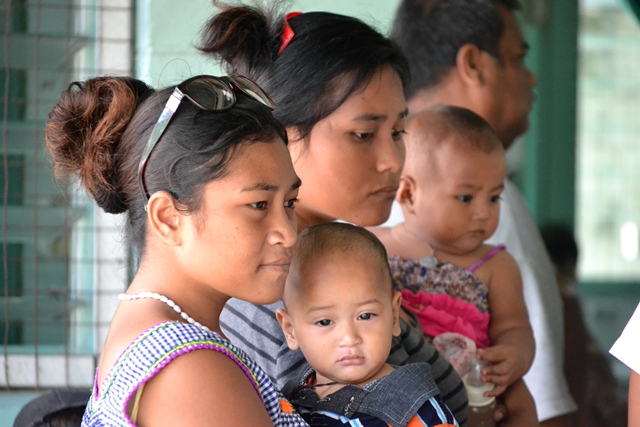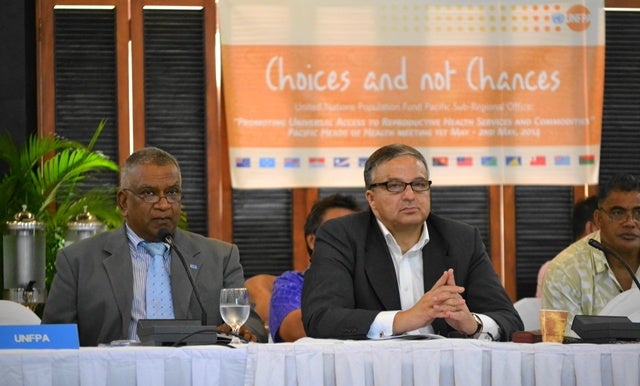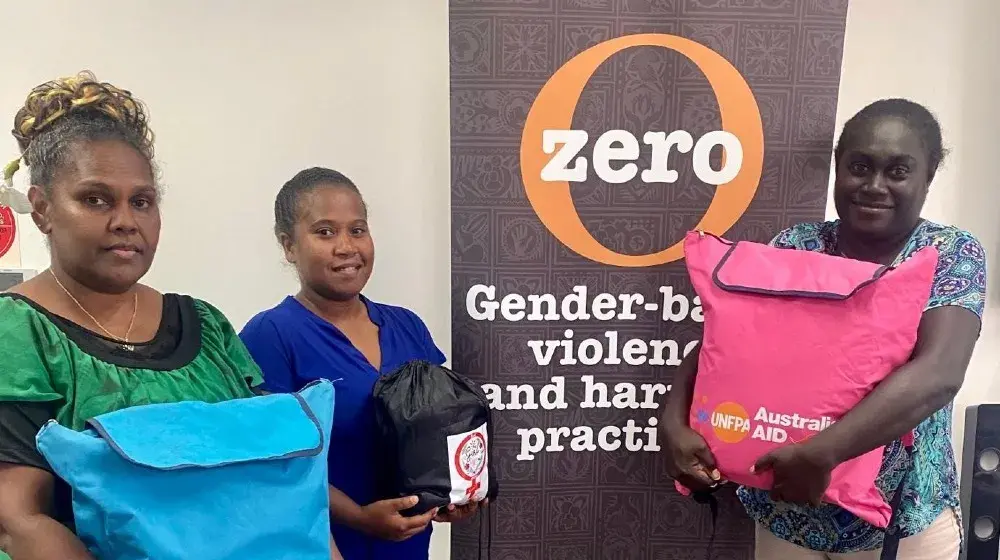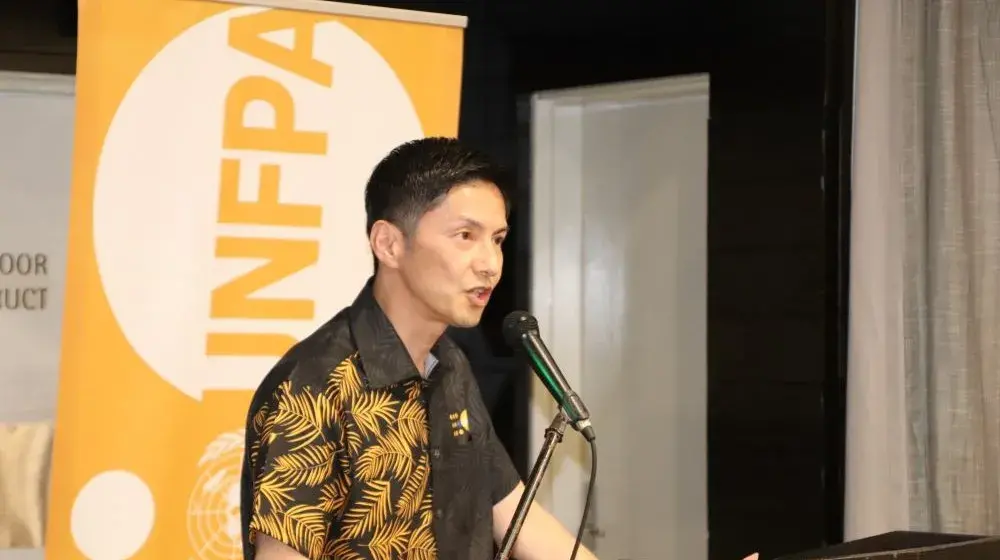FIFTEEN Pacific Island nations including Papua New Guinea have reaffirmed their commitment to achieving universal access to reproductive health through continuing work with the United Nations Population Fund (UNFPA) Pacific Sub-Regional Office (PSRO).
During a two-day regional consultation with policymakers from ministries of health from May 1 in Nadi (Fiji), the countries agreed on key actions to boost the countries' continuing efforts towards eliminating barriers to universal access of reproductive health services and information.

Countries expressed gratitude for a series of Family Planning and Reproductive Health Assessment Needs reports which were presented to them at the meeting. Topics participants covered ranged from reproductive health services to the management of commodities; donor partners then spoke of their contribution to the efforts of making reproductive health universally accessible as a panel.
Countries also discussed and agreed that efforts to involve boys and men in the area of reproductive health should be strengthened.
Opening the meeting, Fiji's Health Minister Dr Neil Sharma said reproductive health was not fully addressed "in many jurisdictions" but he emphasised the right-based approach where individuals must have the information to make their choices (whether to have children or not, when to have them and how many) and be accessible to services to be able to practice their choice.
"In the context of the Pacific, we need to ensure that young people are offered the confidentiality they need," Dr Sharma said. "Our laws need to address pregnancy with a lot more scope and vision. Some of our Pacific laws are very restrictive and we often see and hear of aborted foetuses in latrines, babies dumped at maternity units and orphanage doors - simply stated, many of our Pacific laws in many jurisdictions fail to address medical termination of pregnancy.
"I would be failing in my responsibility if I do not address the importance of education of our young men in reproductive health. Their knowledge gap to understand their female partners' choices is a huge step to work towards."
UNFPA Pacific director and representative Dr Laurent Zessler said support demonstrated by countries was critical as a catalyst to collective progress for countries and the region as a whole.
"Now we continue our collaborations with countries with increased vigour after the meeting which ascertained where we are, the best pathways forward and identifying areas where we need to strengthen our efforts," Dr Zessler said.
"Sexual and reproductive health has always been a core mandate area and programming expertise of the United Nations Population Fund and we are delighted that the countries have affirmed their full support for our continuing collaboration."
The countries affirmed their commitment to an enabling environment that will ensure universal access to reproductive health services like family planning mechanisms and commodity supply, and working towards a much more strengthened country capacity to sustainably maintain health systems to support universal access.
"Reproductive health in my opinion is a development issue and I think the region also needs to acknowledge that and needs to address it from a developmental perspective," Marcus Samo, the assistant secretary of Health in the Federated States of Micronesia government said. "It's not just one sector's work, reproductive health requires the whole government, all-sectors' approach - from education, the basic primary health care level, the role of women or family; this also requires more of a country's inward looking, an introspection of its own philosophies."
Dr Helentina Garstang, Republic of the Marshall Islands reproductive Health and Family Planning clinical director said the meeting was a timely reminder that when reproductive health was well taken care of, most societal issues island communities were struggling with would be "lessened and or improved".
Solomon Islands' Dr Tenneth Dalipanda said the assessment reports would be critical to his country's response to reproductive health issues.
He said: "It is important in the sense that the outcome of this meeting will be used to inform our ministers (and) in terms of working collaboratively with partners, ensuring that we are not duplicating our activities but achieving, aiming for the same goals and ensuring that we achieve the objectives of the goals."
Niue's Mine Pulu identified the need for more reproductive health-related training for health workers and practical assistance in operationalising existing policies as critical for her country response.
Chief of UNFPA's Commodity Security Branch Jagdish Upadhyay congratulated governments for all that has been achieved in relation to the management of commodities. Mr Upadhyay encouraged countries to accelerate advocacy for commodity-related issues and emphasised the critical youth component.
Mr Upadhyay also emphasised the importance of governments indicating the importance of reproductive health for their population by their willingness to provide budgetary allowances for commodities.
"I'm acting as your ambassador there and am always talking about how the Pacific needs support but I think that level of dialogue has changed. I will urge you it will make a big difference if the government tells the global partners, 'this is my priority, I will put some resources, this is the gap, can you support us'? That changes the tone of negotiations," Mr Upadhyay said.
Mr Upadhyay said reports from countries on how South-South co-operation have benefited them was most encouraging adding it was better to maintain this practice as the individuals involved better understood country situations, cultural nuances and other aspects that contributed to their success.
The key actions and recommendations from the consultations will be formalised during biennial regional ministers of health meeting in 2014. Outcomes of meetings like last week will also contribute to the discussions at the International Conference on Small Island Developing States meeting to be held in Samoa in September (2014) which will focus on "genuine and durable partnerships".
Dr Zessler said UNFPA Pacific would continue to work with member states to ensure that the special needs of the region were reflected in the post-2014 development agenda, when the current Program of Action (PoA) of the International Conference of Population and Development (ICPD) ends.





